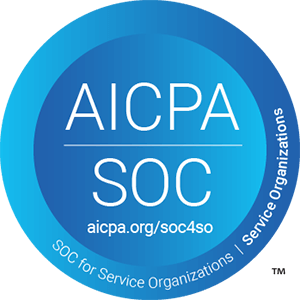
Yearly appraisal plays an important role in ensuring effective performance management of employees.
However, the traditional ways of conducting yearly appraisals don’t prove effective in modern work environments.
Most managers and supervisors today treat yearly appraisals as an unnecessary corporate exercise.
A report by SHRM revealed that 95% of managers feel dissatisfied with their organization’s yearly appraisal process.
A Gallup survey found that only 14% of employees felt inspired by their yearly appraisals. This makes it necessary for companies to work toward revamping their yearly appraisal processes.
Companies need to forgo the top-down approach and make the process employee-centric and transparent.
They need to understand the factors impacting the effectiveness of the process. Companies also need to learn about the most effective ways to enhance the impact of yearly appraisal.
Phases of yearly appraisal
Before we understand what are the points which impact yearly appraisals and tips to make them correct. let us first go through the different phases of yearly appraisals.
An efficient year-end review comprises the following three phases.
Phase 1 of yearly appraisals
Companies need to prepare for the annual appraisal long before they start the process. It involves taking the necessary steps to make the process more productive and meaningful for the employees.
These steps may include monitoring employee performance constantly and sharing details of expectations.
Phase 2 of yearly appraisals
The second phase focuses on conversing with the employees about their performance. This phase often overlaps with the actual appraisal process and hence needs proper handling.
It is important to keep this phase less formal and more interactive. it is equally important to ask the right questions and avoid using negative words and phrases.
Phase 3 of yearly appraisals
During the third phase, companies set the goals for the next appraisal cycle after discussing with the employees.
Companies also share any inputs related to the current appraisal cycle to motivate the employees. Most importantly, it is during this phase that the employees receive feedback on their performance in the current cycle. Wondering what type of performance appraisals you can implement in your startup? Check our our detailed guide.
Build a seamless performance
review system your employees
love!
Factors that impact the effectiveness of yearly appraisals

A study by i4CP revealed that while 52% of companies conduct annual performance appraisals, only 55% of employees find them effective.
Organizations need to first understand the various factors that impact the effectiveness of the yearly appraisal process. The most important of these factors include the following.
Poor clarity about the process
Most employers fail to communicate the need and objectives of yearly appraisals to the employees. Thus, employees fail to understand the benefits of the process causing them to lose interest in it.
This naturally impacts the effectiveness of the process and diminishes the ability of leaders to distinguish between high and low performers.
According to the findings of the Leadership IQ survey, the current yearly appraisal negatively impacted the opinion of HR for around 88% of respondents.
Lack of trust in the process
Lack of trust in the appraisal process is another important factor that impacts its effectiveness. A majority of employees feel favouritism with managers plays an important role in the appraisal process. This makes the process biased and of little value to the employees.
A study conducted by Leadership IQ revealed startling facts about the employees’ lack of trust in the process.
More than 80% of the respondents believed that their yearly appraisal lacked openness, honesty, and meaningfulness.
The process is too time-consuming
Employees often feel that the appraisal process in their organization is too lengthy and complicated. The complex questions that the employees need to answer as a part of the process are often confusing and time-consuming.
Answering them disrupts the regular work of the employees and they start perceiving it as a burden.
In the Leadership IQ survey, 36% of the respondents were never or rarely sure that their performance was up to the mark. This indicated the complexity of the process and why employees considered it ineffective.
Inability to communicate effectively
Lack of proper communication between employees and managers also impacts the effectiveness of the appraisal process.
It prevents the employees from accurately providing their performance reports with supporting data.
Managers also fail to offer clear and specific details about what is expected of the employees at the beginning of the appraisal process.
This is evident from the fact that around 54% of respondents in the Leadership IQ survey felt that their managers fail to recognize their accomplishments.
Absence of regular feedback
Offering and seeking feedback should form an integral part of the yearly appraisal process. Regular feedback helps employees to stay better understand their strengths and weaknesses.
It also helps managers to learn about the best ways to motivate the employees by citing specific examples.
The inability of managers to seek and provide regular feedback thus impacts the effectiveness of annual performance appraisal.
In the Leadership IQ survey, only 14% of employees felt that they received relevant and meaningful feedback through performance appraisal.
Tips to enhance the effectiveness of the yearly appraisals

To enhance the effectiveness of yearly appraisal, organizations need to perform the process in the right manner.
This requires companies to gain a better understanding of different phases of the process. They also need to learn about the best tips to follow for making the yearly appraisal more effective.
Given below is a brief explanation of both these aspects.
Yearly appraisal impacts the overall productivity and efficiency of the workforce within an organization.
Improving the effectiveness of this process is essential to boost employee morale and keep them motivated. Some useful tips to help companies achieve this objective include the following:
1Updating the appraisal skills
Managers and supervisors should brush up on their appraisal skills. It is important to conduct the performance appraisals as per current company policies.
This helps in maintaining the authenticity of the appraisals and enhancing their value for employees.
2Performance appraisal cycle
Companies should set up a regular employee performance appraisal cycle. This means reviewing the performance and efficiency of the employees periodically.
This helps in ensuring better performance management of the employees for better outcomes. It also provides more relevant data for yearly appraisal, making the process more effective.
3Setting the employer expectations in advance
Inform the employees about employer expectations in advance. Sharing the agenda of the appraisal process and the benefits of the same helps to reduce employee stress.
It also enables employees to come better prepared for the appraisal meeting. This ensures better outcomes than when the employees arrive for their appraisal meet unprepared and under pressure.
Asking the right questions helps in boosting the confidence of the employees and diminishes their sense of being reprimanded.
It helps the employees to have a frank discussion about their performance with the managers. It also helps the managers to set clear expectations as per their understanding of employee skills and competence.
4Transparent appraisal process
Managers should use the performance notes to simplify the appraisal process. Make the notes beforehand based on the data collected during the performance appraisal cycles.
It helps in making the process more transparent by validating each point with relevant data. This, in turn, helps to establish the trust of the employees in the process and makes it meaningful for them.
5Informal appraisal meeting
Companies should enhance employee comfort by making the process less formal. Conducting the appraisal meeting in an informal setting makes it less daunting for the employees.
Managers should focus more on the positive aspects of employee performance rather than the negative ones.
Using an encouraging and supportive tone also helps the employees to relax and open up about their problems. This helps to improve the effectiveness of the annual appraisal process.
6Conducting a two-way open discussion
Promote a two-way open discussion with employees to enhance employee comfort and confidence.
Asking open questions from the employees about their performance is the best way to build their trust. It helps employers to gain a better understanding of employee perspectives.
They can then guide the employees according to ensure their better growth and development.
7Encourage self-appraisal
Encourage the practice of self-appraisal among employees. Companies should ask employees to assess their own performance before they come for the appraisal meeting.
This helps in turning the confrontational tone of the meeting into an interactive one. It helps to assure the employees that they have greater control over their performance.
It also makes them realize their drawbacks and seek guidance and support for the same.
8Listen to employees
Train managers to listen to what employees have to say during the meeting. Most employees feel that yearly appraisal meets are more like a sermon by their managers.
Eliminating this feeling of being unheard is important to make the process more effective. So companies need to train their managers to listen to what the employees have to say.
Managers should avoid interrupting the employees while they speak even to seek clarifications. They should also mutually summarize the current point of discussion before moving to the next point.
9Praise praise praise
Managers should avoid using negative words and phrases during yearly appraisal meetings. Using such words tends to discourage and demotivate the employees and make them feel worthless.
Rather, the managers should discuss the best ways to help employees overcome their shortcomings. They should also appreciate their good work and praise them for even the smallest improvement in their performance.
10Pre-decide the next appraisal date
Decide a date for the next appraisal cycle for employees performing poorly. Such employees need constant motivation and support to improve their performance.
Setting a mutually agreed-upon date for the next appraisal cycle during the current one gives employees enough time to prepare for the same. It also helps them to stay focused and seek timely help and guidance if they need the same.
11Setting mutual objectives
Set mutually agreed-upon objectives for the next cycle to improve performance. This acts like instant feedback for the employees and motivates them to take appropriate action.
Moreover, setting the goals for the next cycle beforehand helps guide the employees in the right direction. This makes the appraisal process more valuable and meaningful for them.
12Document the appraisal discussion
Managers should make sure to keep a documented record of the discussion. They should share a copy of the records with the employees and seek their feedback about the same.
This helps in minimizing any confusion between the employees and the managers about the appraisal. It can also be used for reference in future discussions and to compare performance outcomes.
Summing Up
Having an effective yearly appraisal process can improve the productivity of an organization. It can also strengthen the trust of employees in the process and make it more beneficial for them.
Efficient performance appraisal also helps to enhance the personal and professional growth of the employees.
Using the above tips helps organizations to make the process more effective and eliminate any bias and inconsistency. It also improves employee engagement and retention besides creating a high-performance workforce.








